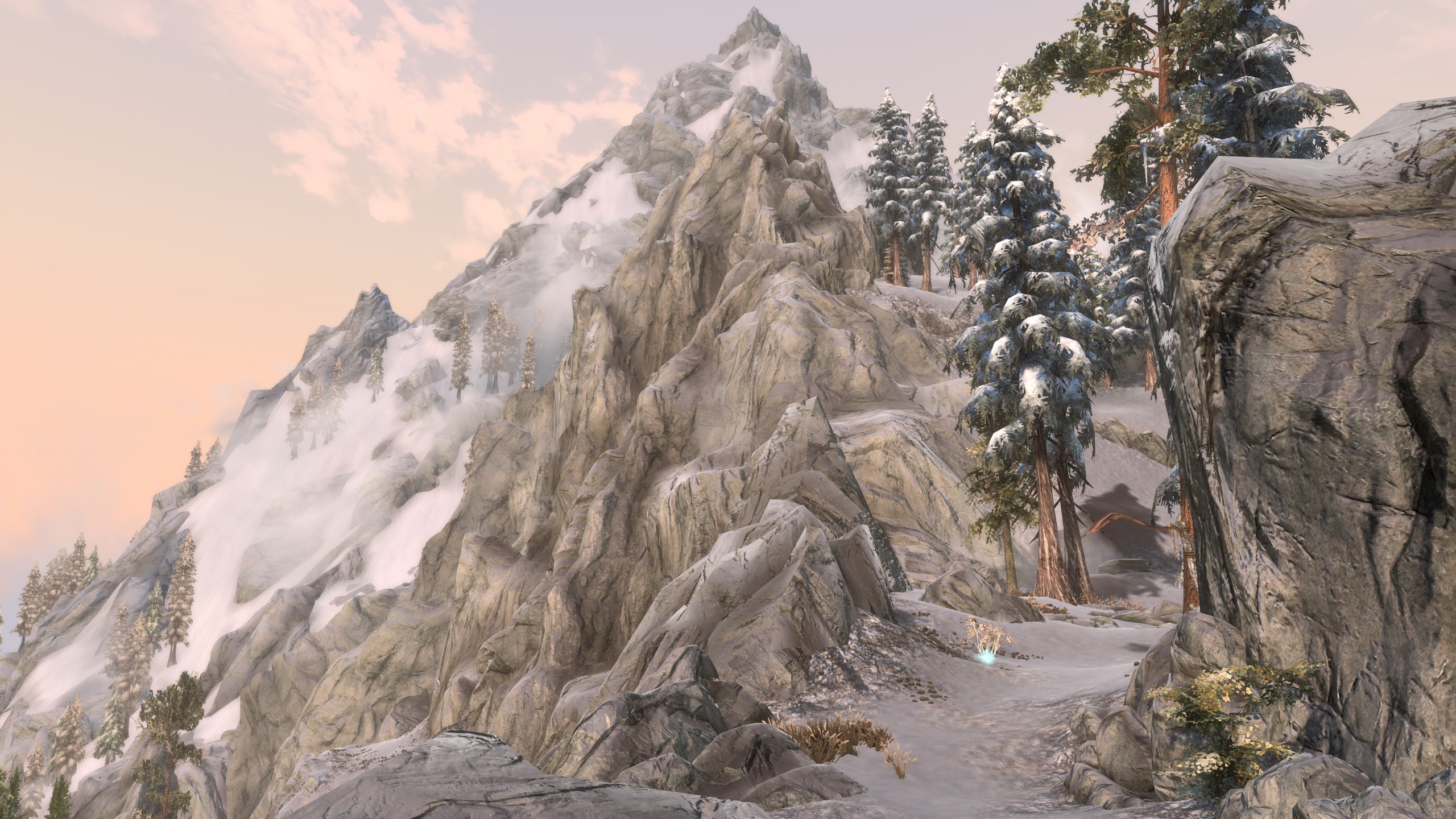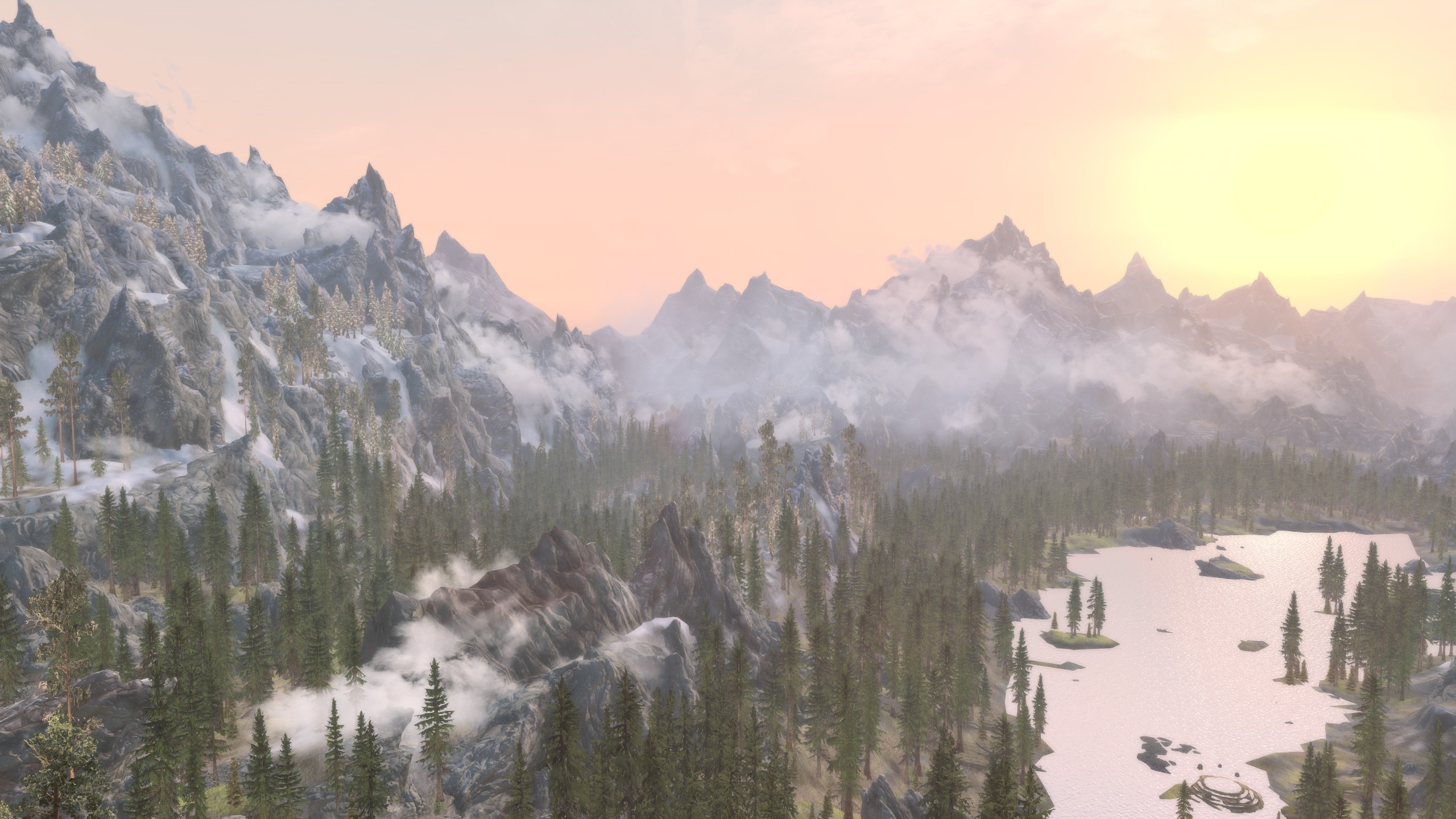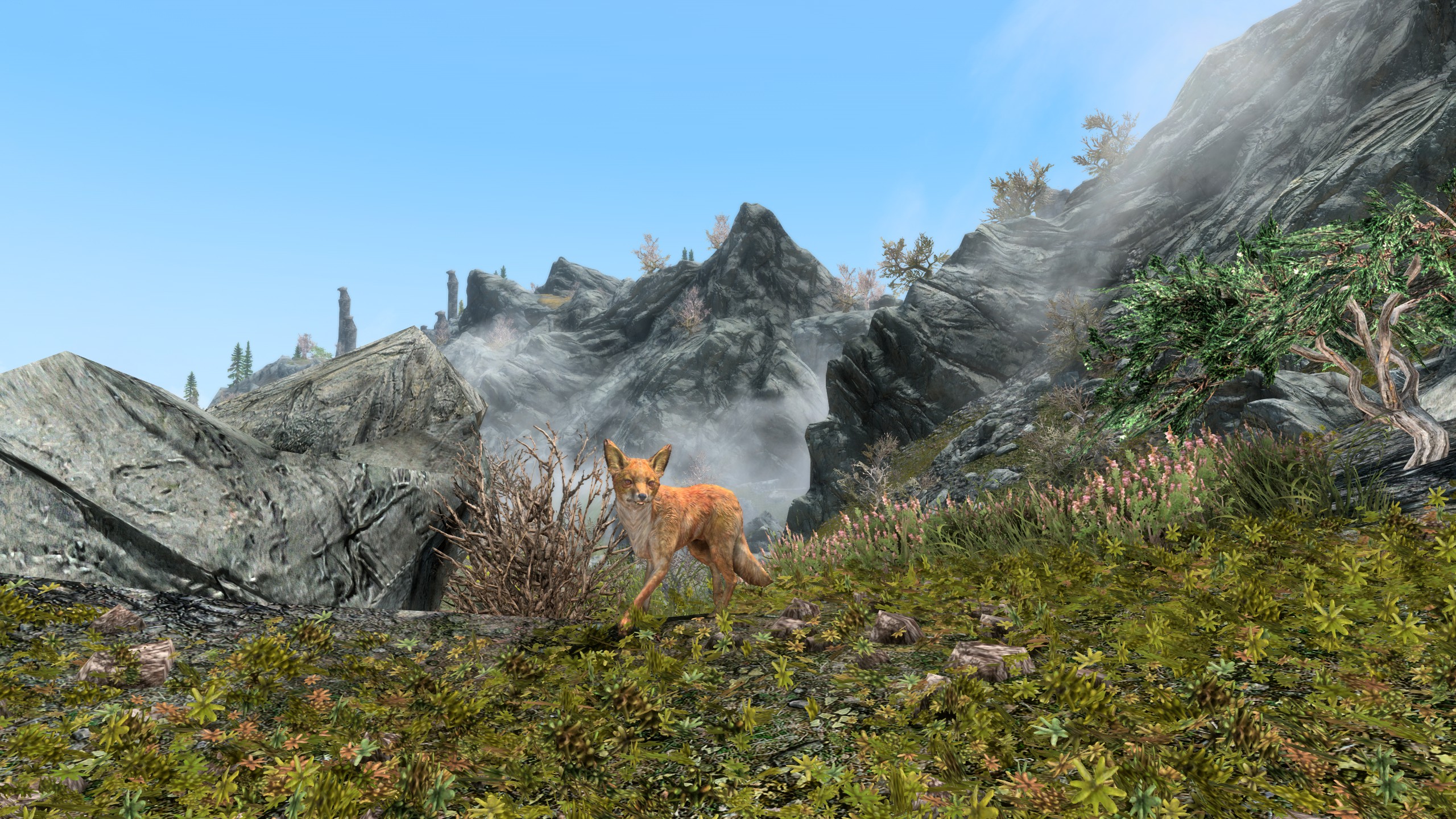The greatest joy in Skyrim is running up an impossibly steep mountain face
Mountain climbing in Skyrim is bizarre, but maybe that's a beautiful thing.

I hereby offer my apology to every environment artist working in games, past, present and future. How many hours do they spend creating lavish, gorgeous, massive open worlds? Hundreds? Thousands? Huge teams spend years bringing to life spaces we could only dream of exploring—resplendent fantasy vistas and detailed historical reimaginings both. And how do I respond to this work? By running face first into a mountain.
My strongest memories of Skyrim are of being pressed against a cliff texture. Yes, it's a game filled with big moments—the dragon attacks, the dramatic battles, the fun sidequests discovered in unlikely locations—but those are punctuations on a game that's often about simply travelling through an enormous world.
Less than an hour into a fresh playthrough, I'm rubbing up against the mountain west of Riverwood, trying to carve my own path to Bleak Falls Barrow in an effort to retrieve a golden claw stolen from a nearby shop. Presumably there is a path that leads here—a painstakingly crafted and playtested route that will contain just enough adventure and excitement to make for a satisfying journey. And yet I've never found it.

Skyrim, like most RPGs, has a compass that points to your next destination. And me, like most idiots, treats that not as a helpful guide, but an absolute beacon of truth. The shortest distance between two points is a straight line. Or, more often, a straight line that leads through a mountain that eventually becomes too steep to climb.
The trick to climbing in Skyrim is persistence. If a mountain cliff becomes impassable, keep going anyway. Keep moving forward, but tilt your mouse to the left or right to start sliding along the horizontal axis. As long as you keep holding the W key, you'll almost never lose vertical position. Eventually you'll start to see opportunities for gaining height—gentler slopes that, with the help of some risky jumps, yield greater elevation.
The trick to climbing in Skyrim is persistence.
Am I ruining my own sense of immersion? Yes, but I'd argue that I'm doing so in a way that makes me appreciate the game even more.
It's tempting to think about escapism purely in terms of the fantasy a game is trying to depict. You're the chosen one, fighting back alone against the forces of darkness. You're the cowboy, railing against the greed and corruption of the civilised world. You're the truck driver, shipping essentials across the highways of Europe. But your lasting impression of a game is more than just the fantasy it's trying to sell. It's about the way you chose to play.
The biggest gaming news, reviews and hardware deals
Keep up to date with the most important stories and the best deals, as picked by the PC Gamer team.

Games once held a sense of mystery and wonder. As a child, it felt like anything was possible in these rudimentary worlds. Eventually, though, my knowledge of what games could do—what they could be—started to grow. Even as the worlds became bigger and more complex, the infinite possibility space closed in. While plenty of games surprise with their ideas and execution, the sense of magic was lost. I used to think that was a sad thing, but I've grown to appreciate the relationship that forms in a work that's familiar and known.
There is no mystery left in Skyrim. I've played it for hundreds of hours. I've modded it. I've looked inside its editor to find out what makes it tick. And it turns out there's escapism in predictability and order. Our world is chaotic to the point of feeling random. The relationship between cause and effect is so cosmically vast as to be beyond human understanding. In games, though, it can be reassuring to see the edges of a world; to find the limitations of the simulation. If you know what a game can be—if you understand its rules and design—you can also create tricks to turn it to your advantage.
In games, you can run at a cliff until you reach the top. What could be more empowering than that?

Phil has been writing for PC Gamer for nearly a decade, starting out as a freelance writer covering everything from free games to MMOs. He eventually joined full-time as a news writer, before moving to the magazine to review immersive sims, RPGs and Hitman games. Now he leads PC Gamer's UK team, but still sometimes finds the time to write about his ongoing obsessions with Destiny 2, GTA Online and Apex Legends. When he's not levelling up battle passes, he's checking out the latest tactics game or dipping back into Guild Wars 2. He's largely responsible for the whole Tub Geralt thing, but still isn't sorry.


